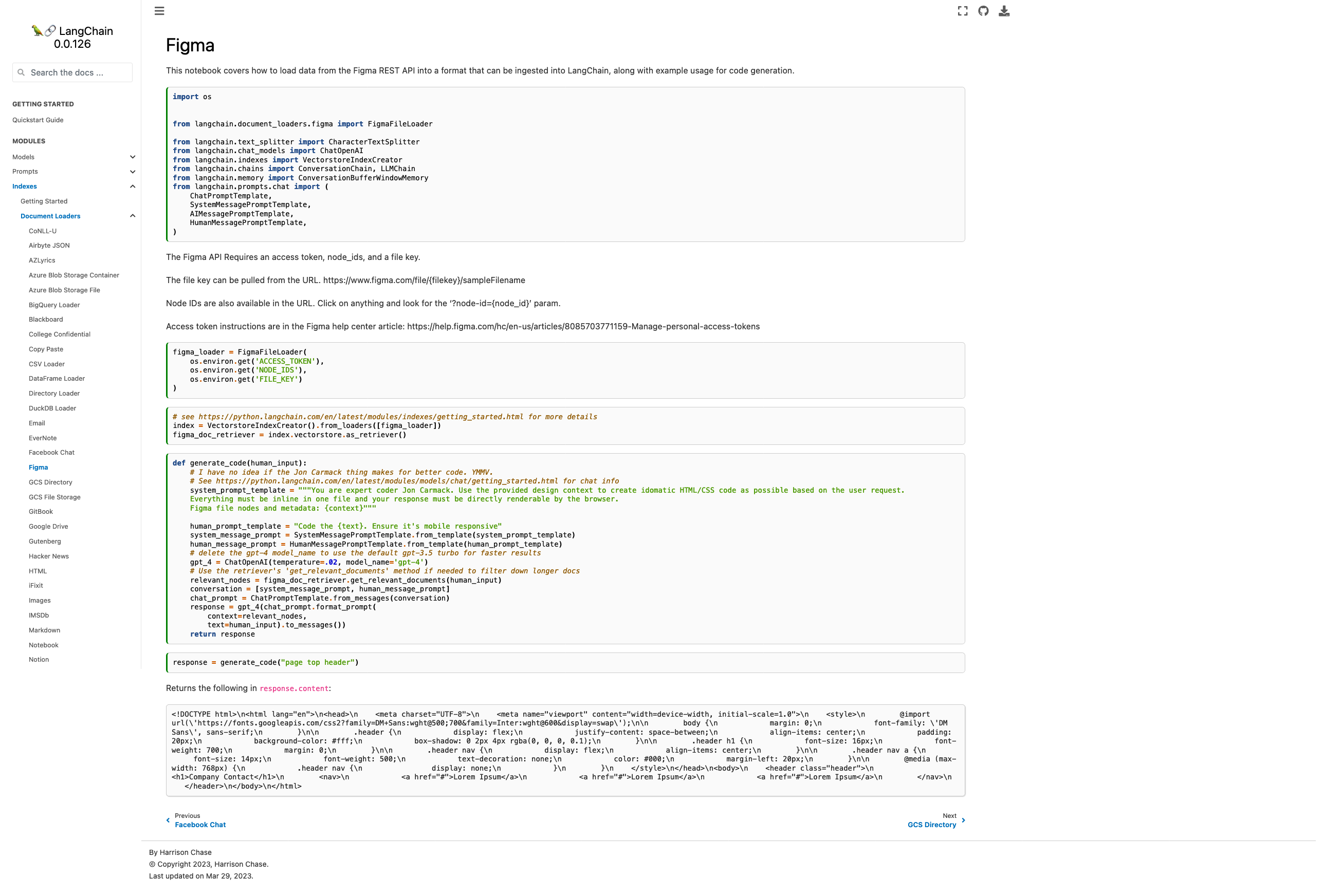Fixes linting issue from #2835
Adds a loader for Slack Exports which can be a very valuable source of
knowledge to use for internal QA bots and other use cases.
```py
# Export data from your Slack Workspace first.
from langchain.document_loaders import SLackDirectoryLoader
SLACK_WORKSPACE_URL = "https://awesome.slack.com"
loader = ("Slack_Exports", SLACK_WORKSPACE_URL)
docs = loader.load()
```
The doc loaders index was picking up a bunch of subheadings because I
mistakenly made the MD titles H1s. Fixed that.
also the easy minor warnings from docs_build
I was testing out the WhatsApp Document loader, and noticed that
sometimes the date is of the following format (notice the additional
underscore):
```
3/24/23, 1:54_PM - +91 99999 99999 joined using this group's invite link
3/24/23, 6:29_PM - +91 99999 99999: When are we starting then?
```
Wierdly, the underscore is visible in Vim, but not on editors like
VSCode. I presume it is some unusual character/line terminator.
Nevertheless, I think handling this edge case will make the document
loader more robust.
Adds a loader for Slack Exports which can be a very valuable source of
knowledge to use for internal QA bots and other use cases.
```py
# Export data from your Slack Workspace first.
from langchain.document_loaders import SLackDirectoryLoader
SLACK_WORKSPACE_URL = "https://awesome.slack.com"
loader = ("Slack_Exports", SLACK_WORKSPACE_URL)
docs = loader.load()
```
---------
Co-authored-by: Mikhail Dubov <mikhail@chattermill.io>
I've added a bilibili loader, bilibili is a very active video site in
China and I think we need this loader.
Example:
```python
from langchain.document_loaders.bilibili import BiliBiliLoader
loader = BiliBiliLoader(
["https://www.bilibili.com/video/BV1xt411o7Xu/",
"https://www.bilibili.com/video/av330407025/"]
)
docs = loader.load()
```
Co-authored-by: 了空 <568250549@qq.com>
**Description**
Add custom vector field name and text field name while indexing and
querying for OpenSearch
**Issues**
https://github.com/hwchase17/langchain/issues/2500
Signed-off-by: Naveen Tatikonda <navtat@amazon.com>
Adds a new pdf loader using the existing dependency on PDFMiner.
The new loader can be helpful for chunking texts semantically into
sections as the output html content can be parsed via `BeautifulSoup` to
get more structured and rich information about font size, page numbers,
pdf headers/footers, etc. which may not be available otherwise with
other pdf loaders
Improvements to Deep Lake Vector Store
- much faster view loading of embeddings after filters with
`fetch_chunks=True`
- 2x faster ingestion
- use np.float32 for embeddings to save 2x storage, LZ4 compression for
text and metadata storage (saves up to 4x storage for text data)
- user defined functions as filters
Docs
- Added retriever full example for analyzing twitter the-algorithm
source code with GPT4
- Added a use case for code analysis (please let us know your thoughts
how we can improve it)
---------
Co-authored-by: Davit Buniatyan <d@activeloop.ai>
### Features include
- Metadata based embedding search
- Choice of distance metric function (`L2` for Euclidean, `L1` for
Nuclear, `max` L-infinity distance, `cos` for cosine similarity, 'dot'
for dot product. Defaults to `L2`
- Returning scores
- Max Marginal Relevance Search
- Deleting samples from the dataset
### Notes
- Added numerous tests, let me know if you would like to shorten them or
make smarter
---------
Co-authored-by: Davit Buniatyan <d@activeloop.ai>
This PR updates Qdrant to 1.1.1 and introduces local mode, so there is
no need to spin up the Qdrant server. By that occasion, the Qdrant
example notebooks also got updated, covering more cases and answering
some commonly asked questions. All the Qdrant's integration tests were
switched to local mode, so no Docker container is required to launch
them.
`persist()` is required even if it's invoked in a script.
Without this, an error is thrown:
```
chromadb.errors.NoIndexException: Index is not initialized
```
### Summary
This PR introduces a `SeleniumURLLoader` which, similar to
`UnstructuredURLLoader`, loads data from URLs. However, it utilizes
`selenium` to fetch page content, enabling it to work with
JavaScript-rendered pages. The `unstructured` library is also employed
for loading the HTML content.
### Testing
```bash
pip install selenium
pip install unstructured
```
```python
from langchain.document_loaders import SeleniumURLLoader
urls = [
"https://www.youtube.com/watch?v=dQw4w9WgXcQ",
"https://goo.gl/maps/NDSHwePEyaHMFGwh8"
]
loader = SeleniumURLLoader(urls=urls)
data = loader.load()
```
### Summary
Adds a new document loader for processing e-publications. Works with
`unstructured>=0.5.4`. You need to have
[`pandoc`](https://pandoc.org/installing.html) installed for this loader
to work.
### Testing
```python
from langchain.document_loaders import UnstructuredEPubLoader
loader = UnstructuredEPubLoader("winter-sports.epub", mode="elements")
data = loader.load()
data[0]
```
- Current docs are pointing to the wrong module, fixed
- Added some explanation on how to find the necessary parameters
- Added chat-based codegen example w/ retrievers
Picture of the new page:

Please let me know if you'd like any tweaks! I wasn't sure if the
example was too heavy for the page or not but decided "hey, I probably
would want to see it" and so included it.
Co-authored-by: maxtheman <max@maxs-mbp.lan>
This PR adds Notion DB loader for langchain.
It reads content from pages within a Notion Database. It uses the Notion
API to query the database and read the pages. It also reads the metadata
from the pages and stores it in the Document object.